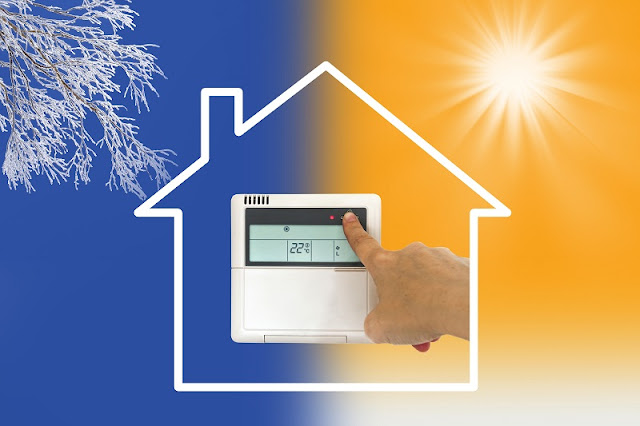The Ultimate Guide to Heating and Cooling: Energy Efficiency and Comfort for Your Home
June 16, 2023Heating and cooling are essential aspects of maintaining a comfortable living environment in our homes. With the ever-increasing need to conserve energy and reduce utility costs, it's important to understand the different types of heating and cooling systems available, as well as the steps you can take to improve energy efficiency in your home. This ultimate guide will explore various heating and cooling systems, discuss their benefits and drawbacks, and provide tips on how to optimize your home's energy efficiency and comfort.
Understanding Heating and Cooling Systems
- Furnaces
Furnaces are a common heating method, using natural gas, propane, or electricity to generate heat. They work by heating air and then distributing it throughout your home via ductwork and vents. Furnaces are a popular choice due to their ability to provide consistent heat and relatively low installation costs. However, they can be less energy efficient compared to other options, and their reliance on fossil fuels may not be an environmentally-friendly choice.
- Heat Pumps
Heat pumps are a versatile option that can provide both heating and cooling. They work by transferring heat from one location to another, either extracting heat from the outdoor air to warm your home or removing heat from your home to cool it. Heat pumps are highly energy efficient, especially in mild climates, and can be powered by electricity or geothermal energy. However, they may not be the best option in extremely cold climates, where a supplemental heating source may be necessary.
- Air Conditioners
Air conditioners provide cooling by removing heat from indoor air and releasing it outside. They can be either central air conditioners, which cool your entire home through ductwork, or ductless mini-split systems, which cool individual rooms. Air conditioners are an effective cooling option but can be energy-intensive, particularly in hot climates. Additionally, they do not provide heating, meaning a separate heating system is required.
- Radiant Heating
Radiant heating systems work by transferring heat directly to objects and people in a room, rather than heating the air. This can be achieved through electric radiant panels, hydronic (water-based) systems, or air-heated radiant floors. Radiant heating provides a comfortable, even heat and can be more energy-efficient than forced-air systems. However, installation costs can be higher, and radiant systems do not provide cooling.
- Geothermal Systems
Geothermal systems use the earth's stable temperature to provide heating and cooling. They work by circulating a fluid through underground pipes, which absorbs heat from the ground in the winter and releases it in the summer. Geothermal systems are highly energy-efficient and environmentally friendly but can have high upfront installation costs.
Improving Energy Efficiency
- Proper Insulation
Ensuring your home is well-insulated is a crucial step in improving energy efficiency. Proper insulation helps to maintain a consistent indoor temperature, reducing the workload on your heating and cooling systems. It's important to insulate not only your walls and attic but also your windows and doors to prevent drafts.
- Sealing Ductwork
Leaky ducts can lead to significant energy loss, as heated or cooled air escapes before reaching its intended destination. Sealing and insulating your ductwork can improve energy efficiency and overall comfort in your home.
- Programmable Thermostats
Installing a programmable thermostat allows you to set temperature schedules for different times of day or days of the week, reducing energy usage when you're not at home or when you're asleep. This can lead to significant energy savings without sacrificing comfort.
- Regular Maintenance
Proper maintenance of your heating and cooling systems is essential to ensure they are operating efficiently. This includes cleaning or replacing filters, inspecting and cleaning ducts, and regular tune-ups by a professional technician.
Choosing the Right System for Your Home
When selecting a heating and cooling system for your home, it's important to consider factors such as climate, home size, and energy efficiency goals. Consulting with HVAC professionals can help you determine the best option for your specific needs and budget.
 |
| Heating and Cooling |
Conclusion
Heating and cooling systems play a critical role in maintaining a comfortable and energy-efficient home. By understanding the different types of systems available, as well as taking steps to improve your home's energy efficiency, you can enjoy year-round comfort while reducing your environmental impact and utility costs. With the right knowledge, you can make informed decisions about your home's heating and cooling systems, ensuring you have the best possible solution for your unique needs.




0 comments